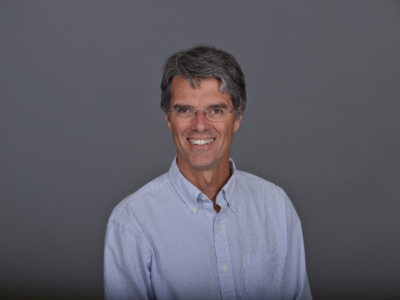Somewhere on the panhandle in West Virginia, Reverend Katharine Smith leans away from her phone’s mouthpiece and apologizes for the baking timer ringing in the background.
After a short discussion about quarantine activities and cookies (this particular batch is for her soon-to-arrive daughter – and one can hear the excitement in her voice), Rev. Katharine Smith starts in on the point of our conversation: her calling to spread the message of good stewardship of the earth. She stops, laughs, and says, “How much time do you have?”
Like most involved in the ongoing conversation about the Creation Care movement (as it’s called in evangelical circles), Rev. Smith speaks with passion and fervor, imbuing a sense of purpose one can tell she comes by honestly.
When asked to speak about her journey to the Creation Care movement and later the founding of her organization Baptist Creation Care Initiative, she again laughs:
“Years ago I went to college to be a biologist and have always been interested in science. I did not grow up in the Baptist faith, though. I was actually Catholic and went to Catholic schools for years and years and years. But anyway, I went to college to be a biologist, married a biologist, married a Baptist, and became a Baptist. A few years later, and through a long series of God-ordained events, we ended up being missionaries overseas with the Cooperative Baptist Fellowship. And just through growing our faith and growing our awareness, living overseas… we were in a developing country, and environmental issues were profound.”
When asked to expand on this, Rev. Smith continues:
“We were in Macedonia for most of the time, which is in Eastern Europe, and it’s a former communist country, former Yugoslavia. And this is just an example of the complexity of the issue. There’s a city there, not the capital, whose main industry was making batteries. And most or many of the people in the town worked for the battery companies. And making batteries produces a lot of lead. And so there were huge amounts of lead in the water, and in the vegetables and in the ground and in the dirt and in the air. A lot of lead poisoning, and it showed up and of course, in the health of the families. My husband did development work, and he worked on trying to restore some of the waterways that had been drained because the people needed to irrigate their fields, but they didn’t have a way to maintain proper irrigation. So they drained the lake. That’s not a good thing.”
Upon her return from the mission, Rev. Smith went back into the workforce for a few years before feeling God’s call to return to academia where she majored in theology and ecology.
“It just occurred,” she says of her newfound pull toward environmentalism and the Creation Care movement. “As I was taking these courses, and seeing how God and creation work together in everything.”
Pivoting to her organization Baptist Creation Care Initiative she goes on to add:
“What really drove me to start my organization…once I came out of the university, and started working for the Methodists. And I started looking around and the Catholics had a group to work with the environment, the Episcopalians had a group, the Lutherans had a group, you know…the Evangelical Environmental Network was out there. There were so many out there, (but they weren’t Baptist) and people weren’t speaking the Baptist language.”
After explaining her calling to be a “liaison” in the Baptist world and the importance of working with all of these different groups, she leans into the heart of the matter, into where she finds the inspiration for what one can tell are firmly and deeply held beliefs: Scripture. She cites the story of Noah and then moves into a slightly lesser-known passage she views as a salient aspect of what draws her to creation care with such fervor.
“Romans 1:20 talks about God’s invisible qualities. What are God’s invisible qualities and where do you see them? You know, what do you see in a mountain and then (in) the stars and then (in) a butterfly?”
Citing a frequent framing device she uses in speeches to illustrate the importance of caring for creation she adds, “I talk about the dodo bird, or pollution from an oil spill, or drought because of climate change, and if God’s qualities are hidden, or killed off like they were with the dodo bird, then what quality of God should we have been able to see, (but) can’t see anymore? What is hidden when all you can see (are) the ravages of drought or flood? And what are people seeing about God when they’re experiencing climate change? So this becomes a big faith issue, especially for Baptists that are so profoundly aware of our Bible.”
Before returning to preparations for her daughter’s imminent arrival she explains her mission at this point in life – regarding her work in Creation Care – is to amplify the message. “There are so many good resources out there. We’re trying to just let people, pastors, churches, communities, whoever needs it, know that they’re out there and make ourselves available.”
Once more, before hanging up the phone, Rev. Smith makes clear that she is an around-the-clock resource for anyone interested in learning more about Creation Care and how it relates to their own faith. And, one gets the sense that this is exactly who she is and what she loves to do.





 Copyright
2025
Root and Vine
Copyright
2025
Root and Vine